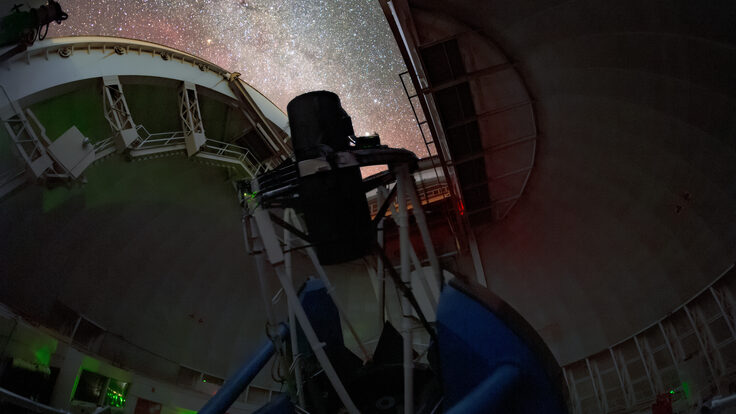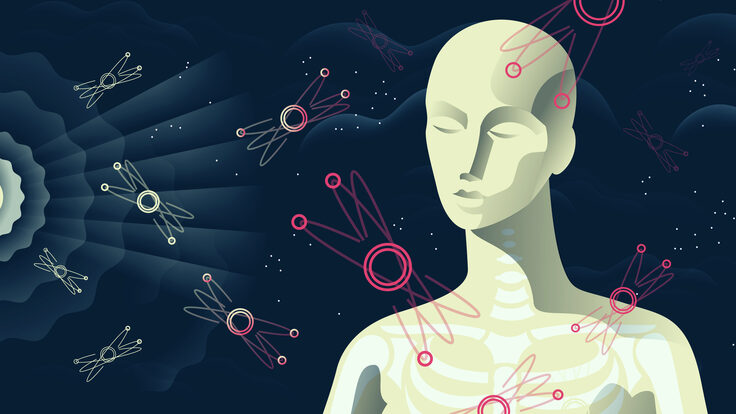A deck of particles
 |
| Photo: Brookhaven |
Want to play with subatomic particles? You could go to work at Brookhaven National Laboratory's Relativistic Heavy Ion Collider, RHIC—or you could play a new card game.
Two Hungarian students, Csaba Török and Judit Csörgõ, and Judit's dad, RHIC/PHENIX collaborator Tamás Csörgõ, invented the Quark Matter Card Game as an entertaining way to learn about subatomic particles and their interactions. The teens were inspired by physics presentations in the science club at their secondary school, where Tamás Csörgõ frequently gave science talks.
The game, now available in Hungarian and English, “provides a great opportunity for all people—not just physicists—to get acquainted with some of the elementary particles and concepts of the Standard Model,” Török says.
Players can play four games with the deck of cards. Icons represent particles and antiparticles, including neutrinos, electrons, positrons, muons, and quarks. In Quark Matter, a game that models RHIC physics, the cards are placed face up on a table and packed closely together to represent matter at the instant of collision—a quark-gluon plasma. The object for each player is to quickly extract particles in the order they would emerge from the collision: non-interacting neutrinos and antineutrinos first, followed by electron/positron and muon/antimuon pairs, then quarks and antiquarks as they hadronize, or freeze out, to form mesons, baryons, and anti-baryons. Players must pick cards in an order that maintains a neutral color charge—a property of quarks and gluons that has nothing to do with color in the ordinary sense.
As players race to extract cards, the fluid particle system created by the collision expands just as it does in a real RHIC collision. Players score points for each correct particle pick. More sophisticated players can name the particles as they extract them. Additional games teach and reinforce deeper concepts, such as weak decays and conservation laws.
For more information, visit https://sites.google.com/site/particlescardgame/
Karen McNulty
Click here to download the pdf version of this article.






